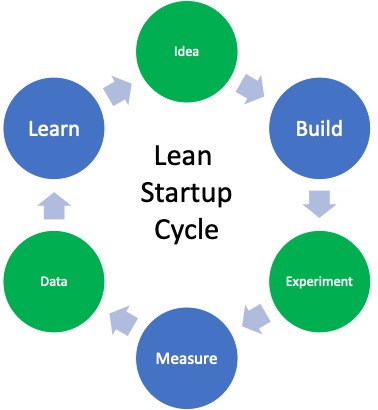Introduction
Imagine walking through a bustling market in Lagos, surrounded by a sea of diverse faces, each with their own unique needs and desires. As a business owner, how do you make your voice heard above the noise? How do you ensure that your products or services reach the right ears and resonate with the right hearts? This is where the art of market segmentation comes into play, transforming the chaotic marketplace into a canvas of opportunity for Nigerian businesses.
Let’s embark on a journey through the vibrant landscape of Nigerian commerce, exploring how effective market segmentation can be the key to unlocking unprecedented success for businesses across our great nation.
The Power of Market Segmentation in Nigeria
In a country as diverse and dynamic as Nigeria, understanding your audience is not just important – it’s essential. Our nation is a tapestry of cultures, languages, and traditions, each thread contributing to a rich and complex market. But with this diversity comes a challenge: how can businesses effectively cater to such a varied customer base?
Market segmentation is the compass that guides businesses through this complexity. By dividing the larger market into smaller, more manageable groups with shared characteristics, Nigerian businesses can:
- Tailor products and services to specific needs
- Create targeted marketing messages that truly resonate
- Allocate resources more efficiently
- Build stronger customer relationships
- Gain a competitive edge in a crowded marketplace
Types of Market Segmentation
Now, let’s delve into the various ways Nigerian businesses can slice the market pie to serve up success:
Geographic Segmentation
From the bustling streets of Lagos to the serene landscapes of the North, each region in Nigeria has its own unique flavor. Geographic segmentation allows businesses to tap into these regional differences. Some things you can look out for in geographical segmentation are:
- Consider regional preferences: What sells well in Kano might not be a hit in Port Harcourt.
- Adapt to local languages and dialects: Tailor your messaging to resonate with local communities.
- Account for climate variations: Seasonal products may perform differently across regions.
Demographic Segmentation
Nigeria’s population is as diverse as it is large. Demographic segmentation helps businesses understand who their customers are at a fundamental level.
- Age groups: The needs of Nigeria’s youth differ vastly from those of older generations.
- Income levels: Tailor offerings to match the purchasing power of different segments.
- Education: Consider how educational background influences consumer behavior.
- Family structure: Products for single urban professionals may differ from those for large families.
Psychographic Segmentation
Beyond the surface-level demographics lies the heart of consumer motivation. Psychographic segmentation delves into the why behind consumer choices.
- Lifestyle choices: Are your customers trendy Lagos socialites or conservative rural dwellers?
- Values and beliefs: How do cultural and religious beliefs influence purchasing decisions?
- Aspirations: What are the dreams and goals driving your target audience?
Behavioral Segmentation
Actions speak louder than words, and behavioral segmentation listens to what consumers do rather than what they say.
- Brand loyalty: Identify and nurture your most loyal customers.
- Usage patterns: Are your products used daily, occasionally, or seasonally?
- Benefits sought: What specific advantages are customers looking for in your products?
Implementing Effective Market Segmentation
Now that we’ve explored the types of segmentation, let’s discuss how Nigerian businesses can put these insights into action:
Know Your Market
Before you can segment, you must understand. Dive deep into market research, leveraging both traditional methods and modern data analytics.
- Conduct surveys and focus groups
- Analyze social media trends and engagement
- Utilize government census data and industry reports
Create Detailed Buyer Personas:
Paint a vivid picture of your ideal customers. Give them names, backstories, and aspirations. The more real they feel, the better you can cater to their needs.
Tailor Your Approach
With your segments identified, craft strategies that speak directly to each group.
- Develop targeted product lines
- Create marketing messages that resonate with specific segments
- Choose appropriate marketing channels for each group
Test and Refine
The Nigerian market is ever-evolving. Regularly test your segmentation strategies and be prepared to adapt as needed.
Overcoming Challenges in Nigerian Market Segmentation
While the benefits of market segmentation are clear, Nigerian businesses face unique challenges in implementation:
Data Scarcity
Reliable consumer data can be hard to come by. You can overcome this by:
- Conducting your own primary research
- Partnering with local universities or research institutions
- Leveraging technology for data collection
Informal Economy
A significant portion of Nigeria’s economy operates informally. Address this by:
- Developing strategies to reach consumers in informal markets
- Using grassroots marketing techniques
- Building trust through community engagement
Rapid Market Changes
Nigeria’s market evolves quickly. Stay ahead by:
- Implementing agile business practices
- Continuously monitoring market trends
- Fostering a culture of innovation within your organization
Conclusion
As we conclude our journey through the landscape of market segmentation in Nigeria, let’s recap the key points that can propel your business to new heights:
- Market segmentation is not just a strategy; it’s a necessity in Nigeria’s diverse marketplace.
- Understanding geographic, demographic, psychographic, and behavioral segments allows for targeted, effective marketing.
- Implementing segmentation requires thorough research, persona creation, and tailored approaches.
- Overcoming challenges unique to Nigeria, such as data scarcity and market volatility, is crucial for success.
Remember, in the vibrant tapestry of Nigerian commerce, your business has the potential to weave its own unique pattern of success. By embracing effective market segmentation, you’re not just dividing the market – you’re conquering it, one segment at a time.
So, fellow Nigerian entrepreneurs, are you ready to transform your business and connect with your audience like never before? The market awaits, diverse and full of opportunity. It’s time to segment, target, and thrive.










